You are here
 August 26 2024
TURNING THE CHURCH INTO THE WINDS: CHURCH DISCIPLINE, CANON LAW, AND WOMEN'S ORDINATION
August 26 2024
TURNING THE CHURCH INTO THE WINDS: CHURCH DISCIPLINE, CANON LAW, AND WOMEN'S ORDINATION
But Smith identifies women's ordination as the first and most significant existential challenge to the ACNA, and what he wrote contributed to the flurry of public online letters that the bishops of the ACNA received (here and here) leading up to the June meeting to elect a new archbishop. At one point Smith suggests that the differences over women's ordination are so irreconcilable they could portend a divorce:
Read more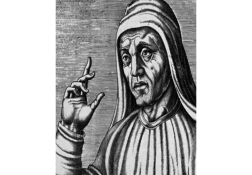 August 24 2024
ALCUIN OF YORK (735 - 804)
August 24 2024
ALCUIN OF YORK (735 - 804)
With the emergence of the current European Union the Christian values and ideals fostered by Alcuin, and maintained by eminent thinkers of his persuasion, have been rudely discarded by the architects of the current EU constitution and its ambitions for the success of this massive economic community spanning the continent, striving at its center to realize the cunningly contrived ultimate goal of a federated super state able to rival even the USA on the world stage.
Read more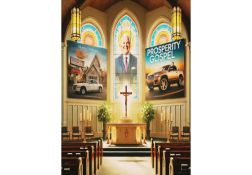 August 15 2024
Why the Prosperity Gospel is Heretical
August 15 2024
Why the Prosperity Gospel is Heretical
Understanding Theological Error vs. Heresy
Read more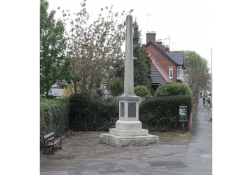 August 15 2024
AGNES PREST: TRANSUBSTANTIATION - A sword to fall on
August 15 2024
AGNES PREST: TRANSUBSTANTIATION - A sword to fall on
Transubstantiation was especially offensive to 16th century Protestants because the Roman Catholic dogma stands opposed to what the Bible teaches. Protestants knew that, to uphold transubstantiation, they also would have to construct a view of clergy and dress them up as sacrificing priests in the exalted Old Testament sense, and to view that Christ is re-sacrificed in every mass.
Read more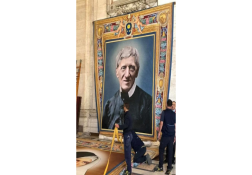 August 13 2024
JOHN HENRY NEWMAN
August 13 2024
JOHN HENRY NEWMAN
The Oxford divines challenged each of these with their own pre-Reformation ideas. In fact, Newman and others in the movement ended up leaving the Church of England for the Roman Catholic Church, leaving behind the ruins of a highfalutin and confused self-identity that is constantly in search for new ways to define itself apart from the traditional Anglican formularies (e.g., three-legged stool, lex orandi lex credendi, three-streams, instruments of unity, etc).
Read more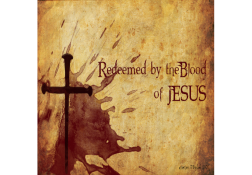 August 12 2024
Redemption and the Theology of Cross
Read more
August 12 2024
Redemption and the Theology of Cross
Read more
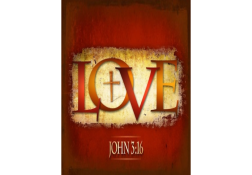 August 09 2024
'Love' and the Message of the Gospel (Part 1)
August 09 2024
'Love' and the Message of the Gospel (Part 1)
In the revised common lectionary used by the Anglican Church of Southern Africa, the collect for Pentecost Sunday asks that God may "send us out as witnesses to the wonder of your love". A recent report from the ACSA Synod of Bishops speaks of "our mission to share the love of Jesus with everyone". A search through the collects for the year finds only one collect explicitly referencing the Lord's charge to preach a message (or kerygma).
Read more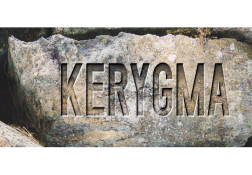 August 08 2024
"Love" and the Message of the Gospel (Part 2: Kerygma)
August 08 2024
"Love" and the Message of the Gospel (Part 2: Kerygma)
The Kerygma
Kerygma simply refers to the proclamation of the essential Gospel message (from the Greek Keryssein -- to proclaim). The word appears in Matthew 24:14 "And this gospel of the kingdom shall be proclaimed (kerysso) throughout the whole world as a testimony to all nations...". The verb is also commonly used in the other synoptics. Paul uses the verb nineteen times and the noun nine times in his letters.
Read more August 06 2024
Happy birthday MATTHEW PARKER!
August 06 2024
Happy birthday MATTHEW PARKER!
For as the Jewish Nehemiah built the walls of Jerusalem in so much opposition, and thereby got himself such everlasting fame. . . so the WALLS of our Jerusalem shall be Archbishop Parker's eternal monument; partly for building them up, chiefly for preserving them, being built, from being thrown down again."
Read more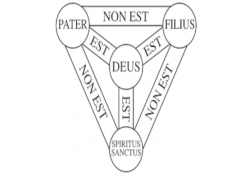 August 02 2024
An Anglican Reflection on the Filioque
August 02 2024
An Anglican Reflection on the Filioque
As a creedal church, Anglicans have retained three historic creeds: the Apostles’ Creed recited at baptisms and Morning and Evening Prayer, the Niceno-Constantinopolitan Creed recited at every celebration of the Eucharist, and the Athanasian Creed or Quicunque Vult. The version of the Nicene Creed found in the historic Books of Common Prayer contains the filioque, as does the Athanasian Creed. In addition, the filioque appears in the Litany:
Read more


